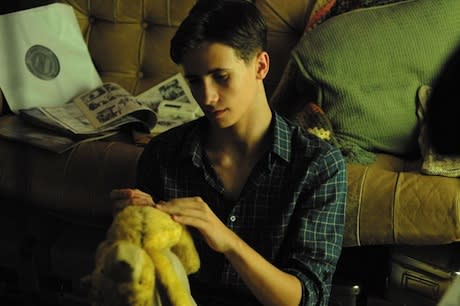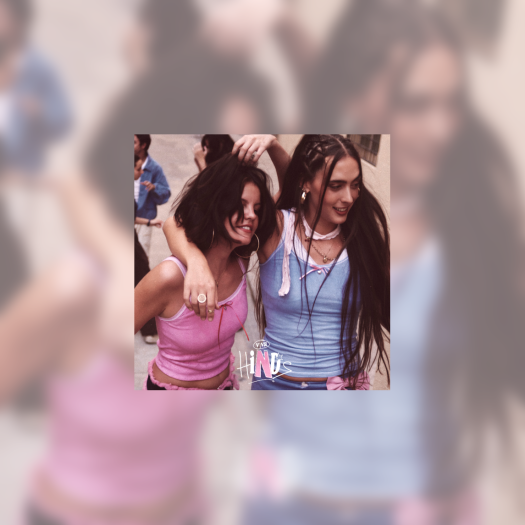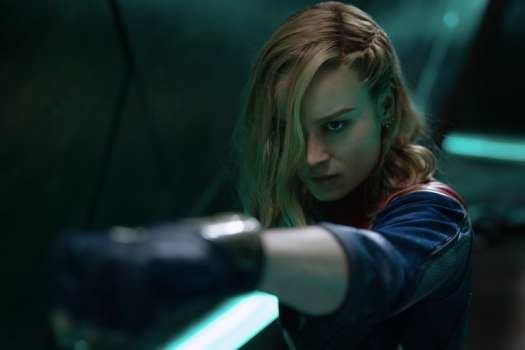In the opening moments of Marçal Forés' deliberately oblique, subtly fantastical coming-of-age parable, Animals, wildlife is juxtaposed with the lights and cement of human life. A girl, later known as Clara (Maria Rodríguez), awakens from a haze to jump in the water with a group of girls, disappearing for a short time only to emerge on the other side of the lake, much to the confusion and terror of those around her.
As framed, there's an otherworldly suggestion that links life and death, giving the reality presented a hazy disposition, which is exacerbated by the follow-up scene, which features Pol (Oriol Pla), our protagonist, walking in the woods having a conversation with Deerhoof, a walking and talking teddy bear, speaking in mechanized computer English while Pol speaks in Catalan. Chiefly, they discuss the cryptic ending of a comic book, which perplexes Pol but leaves Deerhoof enraptured, noting how much he loves it when characters are forced to die for their passions.
Death and passion are recurring themes throughout Animals: Pol shies away from adult responsibilities, such as exams and a sexual awakening, living instead in a vacuum of boyhood fantasy, playing in a band—filmed subjectively with full glitter and lighting effects—with Deerhoof. His best friend Laia (Roser Tapias) has a barely veiled crush on her friend; though his interests lie chiefly with Ikari (Augustus Prew), a moody new student that has his nose in violent anime when not setting off with the similarly enigmatic Clara.
Sex and death are mirrored throughout, with deer, dogs and rabbits often playing victim to the complications and oversights of humans, winding up on the receiving end of out of control cars or interfering with difficult situations at inopportune moments. Their mortality and eerie omnipresence exaggerates the confusion brought on by the inexplicable disappearance of Clara, which, as presented by the adults, is left a mystery to the children who they feel are incapable of understanding or responding to her death.
Throughout, Pol's simultaneous rejection and reliance on his imaginary friend represents his own inability to come to terms with an adult world where death and failure are possibilities. His interpretation of hostile romantic feelings—involving bodily mutilation and wounds as gender-bending, sexualized visual stimuli in a Crash sort of way—is complicated by his naivety. Having an innocence about him, he is easily exploited by an idealized sense of longing that he's as terrified of as he is driven. As Deerhoof outlines earlier, passion is a dangerous force unconscious of mortality.
As Forés frames these issues, as filtered through a world that is slightly awry (where is this Catalan/English school supposed to be, and what happened to Pol's parents?), there is a dreamlike sensibility that forced childhood and adulthood together, just as life and death are inevitably made one. Eduard Grau's cinematography captures this complicated—and potentially alienating—tone and world perfectly, having a sun-drenched hue and slightly unnatural vibe to it all that is beautiful as it is confounding and magnetic.
The flow of it all does struggle with some less than fluid narrative transitions and the very nature of creating a reality-adjacent universe, but considering that this is essentially experiential, expressionist cinema, where feeling and interpretation is more important that surface logic, these structural hiccups are easily ignored.
It's true that Forés owes a lot to Richard Kelly's Donnie Darko, having a similar dark fantasy tone emerging from the self-hatred and worldly rage associated with abject sexual awakening, but he's taken the format in a different direction. He's externalized the homosexual yearning and interpretation of the "other" and simplified the representation of adult hypocrisy as an imposing force on those vacillating between maturity and youthful idealism. Pol is more a victim of socially imposed expectation than he is an aggressor attempting to expose the absurdity of it all.
Here, just as humans and animals are presented as flawed creatures of instinct, innocence isn't made heroic, instead having a life of its own that unfortunately, like everything else, has to die.
(Film Factory)As framed, there's an otherworldly suggestion that links life and death, giving the reality presented a hazy disposition, which is exacerbated by the follow-up scene, which features Pol (Oriol Pla), our protagonist, walking in the woods having a conversation with Deerhoof, a walking and talking teddy bear, speaking in mechanized computer English while Pol speaks in Catalan. Chiefly, they discuss the cryptic ending of a comic book, which perplexes Pol but leaves Deerhoof enraptured, noting how much he loves it when characters are forced to die for their passions.
Death and passion are recurring themes throughout Animals: Pol shies away from adult responsibilities, such as exams and a sexual awakening, living instead in a vacuum of boyhood fantasy, playing in a band—filmed subjectively with full glitter and lighting effects—with Deerhoof. His best friend Laia (Roser Tapias) has a barely veiled crush on her friend; though his interests lie chiefly with Ikari (Augustus Prew), a moody new student that has his nose in violent anime when not setting off with the similarly enigmatic Clara.
Sex and death are mirrored throughout, with deer, dogs and rabbits often playing victim to the complications and oversights of humans, winding up on the receiving end of out of control cars or interfering with difficult situations at inopportune moments. Their mortality and eerie omnipresence exaggerates the confusion brought on by the inexplicable disappearance of Clara, which, as presented by the adults, is left a mystery to the children who they feel are incapable of understanding or responding to her death.
Throughout, Pol's simultaneous rejection and reliance on his imaginary friend represents his own inability to come to terms with an adult world where death and failure are possibilities. His interpretation of hostile romantic feelings—involving bodily mutilation and wounds as gender-bending, sexualized visual stimuli in a Crash sort of way—is complicated by his naivety. Having an innocence about him, he is easily exploited by an idealized sense of longing that he's as terrified of as he is driven. As Deerhoof outlines earlier, passion is a dangerous force unconscious of mortality.
As Forés frames these issues, as filtered through a world that is slightly awry (where is this Catalan/English school supposed to be, and what happened to Pol's parents?), there is a dreamlike sensibility that forced childhood and adulthood together, just as life and death are inevitably made one. Eduard Grau's cinematography captures this complicated—and potentially alienating—tone and world perfectly, having a sun-drenched hue and slightly unnatural vibe to it all that is beautiful as it is confounding and magnetic.
The flow of it all does struggle with some less than fluid narrative transitions and the very nature of creating a reality-adjacent universe, but considering that this is essentially experiential, expressionist cinema, where feeling and interpretation is more important that surface logic, these structural hiccups are easily ignored.
It's true that Forés owes a lot to Richard Kelly's Donnie Darko, having a similar dark fantasy tone emerging from the self-hatred and worldly rage associated with abject sexual awakening, but he's taken the format in a different direction. He's externalized the homosexual yearning and interpretation of the "other" and simplified the representation of adult hypocrisy as an imposing force on those vacillating between maturity and youthful idealism. Pol is more a victim of socially imposed expectation than he is an aggressor attempting to expose the absurdity of it all.
Here, just as humans and animals are presented as flawed creatures of instinct, innocence isn't made heroic, instead having a life of its own that unfortunately, like everything else, has to die.




